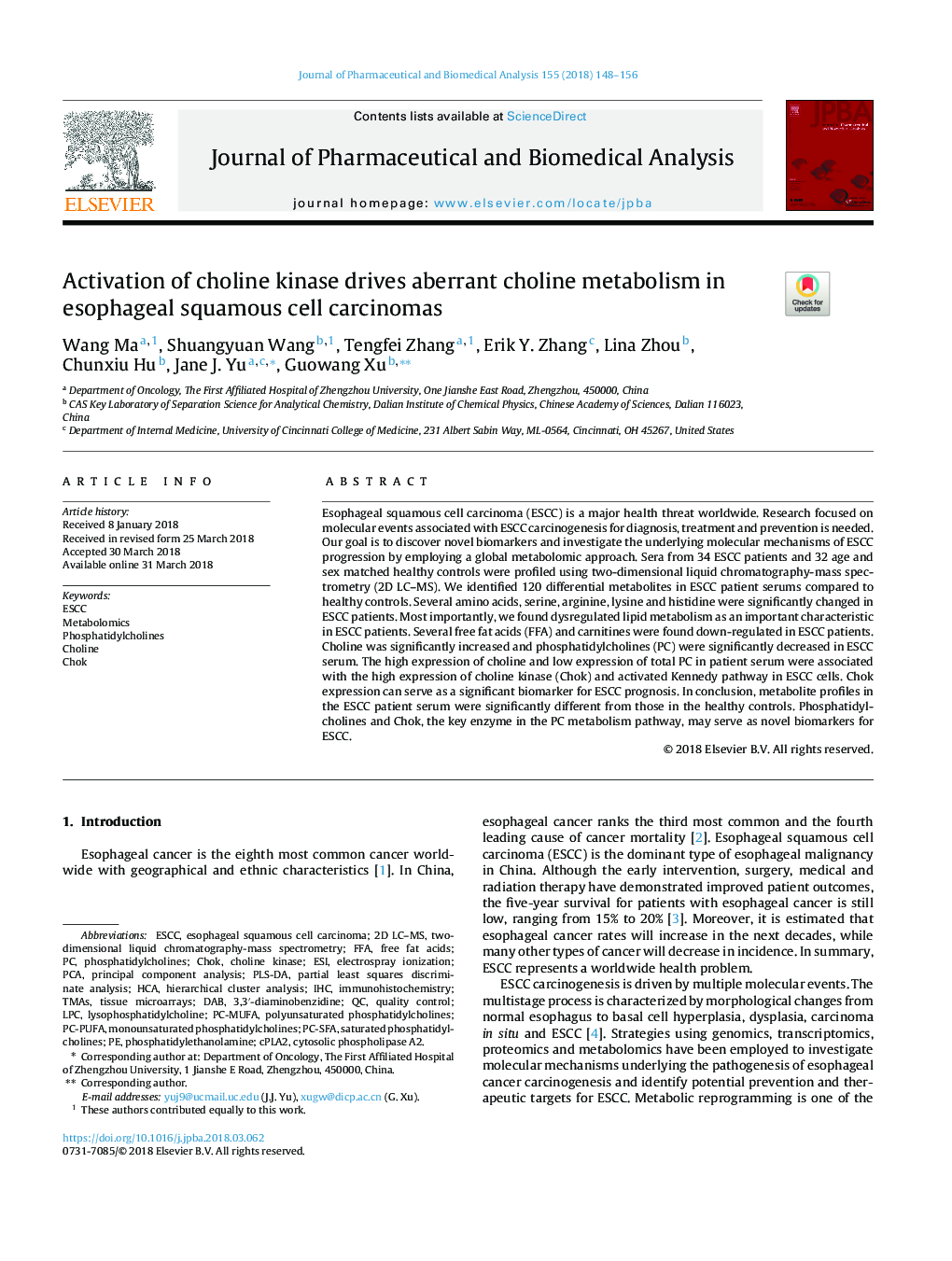| Article ID | Journal | Published Year | Pages | File Type |
|---|---|---|---|---|
| 7626478 | Journal of Pharmaceutical and Biomedical Analysis | 2018 | 9 Pages |
Abstract
Esophageal squamous cell carcinoma (ESCC) is a major health threat worldwide. Research focused on molecular events associated with ESCC carcinogenesis for diagnosis, treatment and prevention is needed. Our goal is to discover novel biomarkers and investigate the underlying molecular mechanisms of ESCC progression by employing a global metabolomic approach. Sera from 34 ESCC patients and 32 age and sex matched healthy controls were profiled using two-dimensional liquid chromatography-mass spectrometry (2D LC-MS). We identified 120 differential metabolites in ESCC patient serums compared to healthy controls. Several amino acids, serine, arginine, lysine and histidine were significantly changed in ESCC patients. Most importantly, we found dysregulated lipid metabolism as an important characteristic in ESCC patients. Several free fat acids (FFA) and carnitines were found down-regulated in ESCC patients. Choline was significantly increased and phosphatidylcholines (PC) were significantly decreased in ESCC serum. The high expression of choline and low expression of total PC in patient serum were associated with the high expression of choline kinase (Chok) and activated Kennedy pathway in ESCC cells. Chok expression can serve as a significant biomarker for ESCC prognosis. In conclusion, metabolite profiles in the ESCC patient serum were significantly different from those in the healthy controls. Phosphatidylcholines and Chok, the key enzyme in the PC metabolism pathway, may serve as novel biomarkers for ESCC.
Keywords
DABTMAsESIESCCcPLA2PLS-DALPCFFAHCA3,3′-diaminobenzidinePCAIHCImmunohistochemistryHierarchical cluster analysisPrincipal component analysisPhosphatidylcholinesphosphatidylethanolaminecytosolic phospholipase A2LysophosphatidylcholineMetabolomicstissue microarraysEsophageal squamous cell carcinomaquality controlCholinecholine kinaseelectrospray ionization
Related Topics
Physical Sciences and Engineering
Chemistry
Analytical Chemistry
Authors
Wang Ma, Shuangyuan Wang, Tengfei Zhang, Erik Y. Zhang, Lina Zhou, Chunxiu Hu, Jane J. Yu, Guowang Xu,
